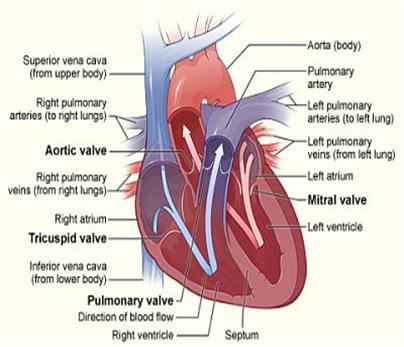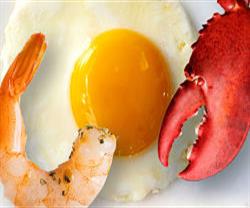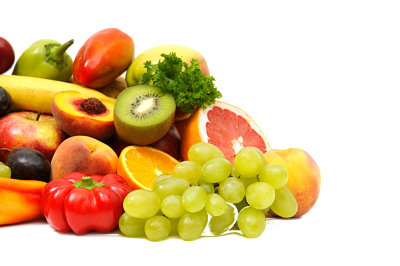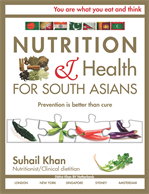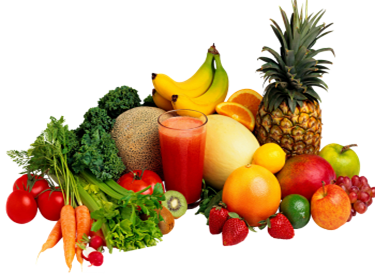

HEART DISEASE
Nutrition cardiovascular diseases
A healthy diet can prevent heart disease or disease symptoms in heart diseases. Nutrition plays an important role especially in the development of ischemic heart disease. In addition to nutrition is to also very important to stop smoking and take part in a lot of exercise in order to preventing heart disease. Measures for prevention of heart disease related to nutrition can be advised by the dietitian. There are several nutritional factors that play a role in causing heart disease. The nutritional interventions that are important in preventing heart disease are explained below.
Restrictions of saturated fat and trans fatty acids
Saturated Fatty acids and trans fatty acids have an adverse influence on cholesterol levels. That is why it is important to limit consumption of saturated fatty acids and trans fatty acids. Intake of saturated fatty acids set at up to 10% per day and energy for trans fatty acids up to 1% per day are good guidelines for a healthy diet. Products rich in these types of fats: butter, ghee (clarified butter), fatty meats and cold meats (sausage), cheese, whole milk (whole milk products), coconut oil, palm oil, biscuits, pastries and savoury snacks (excluding nuts and peanuts). For more information, see 1.2 and table 6.
Omega-3-fatty acids omega-6 fatty acids
Research has shown that omega 3-fatty acids and omega 6-fatty acids reduce the risk of mortality from cardiovascular disease. There are still investigations on the influence of omega 3-fatty acids and omega 6 fatty acids and the development of heart disease. For more information, see table 7. *
A healthy diet can prevent heart disease or disease symptoms in heart diseases. Nutrition plays an important role especially in the development of ischemic heart disease. In addition to nutrition is to also very important to stop smoking and take part in a lot of exercise in order to preventing heart disease. Measures for prevention of heart disease related to nutrition can be advised by the dietitian. There are several nutritional factors that play a role in causing heart disease. The nutritional interventions that are important in preventing heart disease are explained below.
Restrictions of saturated fat and trans fatty acids
Saturated Fatty acids and trans fatty acids have an adverse influence on cholesterol levels. That is why it is important to limit consumption of saturated fatty acids and trans fatty acids. Intake of saturated fatty acids set at up to 10% per day and energy for trans fatty acids up to 1% per day are good guidelines for a healthy diet. Products rich in these types of fats: butter, ghee (clarified butter), fatty meats and cold meats (sausage), cheese, whole milk (whole milk products), coconut oil, palm oil, biscuits, pastries and savoury snacks (excluding nuts and peanuts). For more information, see 1.2 and table 6.
Omega-3-fatty acids omega-6 fatty acids
Research has shown that omega 3-fatty acids and omega 6-fatty acids reduce the risk of mortality from cardiovascular disease. There are still investigations on the influence of omega 3-fatty acids and omega 6 fatty acids and the development of heart disease. For more information, see table 7. *

Copyright © 2013 All rights reserved. Dietician/Nutritionist Khan - Sitemap
WebDen Website Design en Hosting - Website ontwerp door: www.designer-dragonfly.nl
WebDen Website Design en Hosting - Website ontwerp door: www.designer-dragonfly.nl


Most heart diseases are caused by abnormalities in the coronary arteries. Around 40% of the Western population suffer with heart disease. Cardiovascular diseases are the leading cause of illness and death in the Netherlands. Every year, more than 65,000 men and 35,000 women in the Netherlands are admitted to hospital with coronary heart disease as main diagnosis. There are about 45,000 death every year due to heart disease. The myocardial infarction is the main cause of coronary heart disease. The most shocking of this clinical picture is the sudden onset, often without prior symptoms. The incidence is higher in men than in women and the chance of first myocardial infarction increases sharply with age.
Diseases relating to the heart and circulatory system are called heart disease. Within the heart disease category, there are different forms that can be distinguish where coronary heart disease is of most important. The cause and the way they are experienced vary. Atherosclerosis is a deposition of fatty substances from the blood between the wall layers of the arteries.
The total group of disorders caused by these fatty deposits, called atherosclerosis or arteriosclerosis or hardening of the arteries. Heart diseases in the Netherlands and in the Western world are one of the main causes of illness and death. The developments in the treatment and prevention measures have resulted in a reduction in the death rate. That is why it is important to pay attention to the prevention measures of heart disease.
Diseases relating to the heart and circulatory system are called heart disease. Within the heart disease category, there are different forms that can be distinguish where coronary heart disease is of most important. The cause and the way they are experienced vary. Atherosclerosis is a deposition of fatty substances from the blood between the wall layers of the arteries.
The total group of disorders caused by these fatty deposits, called atherosclerosis or arteriosclerosis or hardening of the arteries. Heart diseases in the Netherlands and in the Western world are one of the main causes of illness and death. The developments in the treatment and prevention measures have resulted in a reduction in the death rate. That is why it is important to pay attention to the prevention measures of heart disease.
Limitation of the cholesterol intake
For favourable cholesterol levels in the blood, limit the use of cholesterol-rich foods. Products rich in cholesterol are: eggs (up to two eggs a week), organ meats and most seafood (up to 100 grams once in eight weeks). For more information, see 1.2.1. *
Weight reduction
A combination of weight loss and physical exercise can raise the good HDL levels in the blood. A weight loss of 5 to 10 kg or 5 to 10 percent of body weight makes a significant difference. For more information, see Chapter 4.
Plant sterols and stanols
With high cholesterol levels, the consumption of products that contain plant sterols or stanols are recommended. The consumption of 2 grams per day can reduce total cholesterol by 10 percent and LDL levels by 13 percent. Products plant sterols and stanols have been added, are bread spreads and some yoghurt drinks. For more information, see 2.6. *
For favourable cholesterol levels in the blood, limit the use of cholesterol-rich foods. Products rich in cholesterol are: eggs (up to two eggs a week), organ meats and most seafood (up to 100 grams once in eight weeks). For more information, see 1.2.1. *
Weight reduction
A combination of weight loss and physical exercise can raise the good HDL levels in the blood. A weight loss of 5 to 10 kg or 5 to 10 percent of body weight makes a significant difference. For more information, see Chapter 4.
Plant sterols and stanols
With high cholesterol levels, the consumption of products that contain plant sterols or stanols are recommended. The consumption of 2 grams per day can reduce total cholesterol by 10 percent and LDL levels by 13 percent. Products plant sterols and stanols have been added, are bread spreads and some yoghurt drinks. For more information, see 2.6. *
Alcohol intake
Excessive use of alcohol can lead to increased blood pressure, obesity and increase the fat content in the blood. This excessive alcohol use can cause heart disease. For these reasons a maximum of two drinks per day is recommended. Alcohol intake should be avoided by one with too high fat levels in the blood.
Restriction of sodium
A limitation of 5 to 10 grams of table salt (sodium chloride) may have a beneficial effect for elevated blood pressure. Reduction of salt intake is the reduction of extra cellular fluid, by reducing this moisture blood pressure is lowered. The elderly are more sensitive to this than young people. For more information, see 1.5.3. *
Vitamins and minerals
Foods rich in vitamin B complex, include organ meats, brewer's yeast, soybeans, raw wheat germ and rice bran. B complex vitamins reduce the likelihood of heart disease.
Vitamin K occurs mainly in fresh green vegetables, vegetarian oils, brassica vegetables, egg yolk, liver, kelp, fish liver oil and pig liver. The intestinal flora is stimulated if one regularly consumes yoghurt, buttermilk and other dairy products. Vitamin K increases the immune system and is involved in blood clotting and promotes wound healing process. The form of vitamin K (menachinon) primarily in fermented products such as cottage cheese and cheese prevents the chance for heart disease.
Research has shown that extra calcium intake lowers pressure in individuals with high blood pressure. Calcium occurs mainly in dairy products, sesame seeds, soy beans, green vegetables, walnuts, peanuts and beef broth from marrow, or meat broth. Full grain products, dried legumes (dahl), dried fruit and potatoes also contain calcium.
Magnesium plays a role in lowering high blood pressure. A reduction of high blood pressure has a beneficial effect on the prevention of heart disease. Foods like corn, apples, nuts, figs, grapefruit, whole wheat products, shellfish, dark chocolate, dairy products, soy beans and green vegetables contain relatively magnesium.
Various studies have shown that there is no relationship between the amount of iron in the diet, the iron stores in the body and heart disease. However, there is evidence that a high consumption of products of iron from animal products increases the risk of heart disease. The best natural sources of iron include lamb, beef, organ meats, pork, seaweed, kelp, dried fruit (raisins, apricots, plums), egg yolk, molasses, potato flour, oatmeal, green leafy vegetables and soybeans.
Excessive use of alcohol can lead to increased blood pressure, obesity and increase the fat content in the blood. This excessive alcohol use can cause heart disease. For these reasons a maximum of two drinks per day is recommended. Alcohol intake should be avoided by one with too high fat levels in the blood.
Restriction of sodium
A limitation of 5 to 10 grams of table salt (sodium chloride) may have a beneficial effect for elevated blood pressure. Reduction of salt intake is the reduction of extra cellular fluid, by reducing this moisture blood pressure is lowered. The elderly are more sensitive to this than young people. For more information, see 1.5.3. *
Vitamins and minerals
Foods rich in vitamin B complex, include organ meats, brewer's yeast, soybeans, raw wheat germ and rice bran. B complex vitamins reduce the likelihood of heart disease.
Vitamin K occurs mainly in fresh green vegetables, vegetarian oils, brassica vegetables, egg yolk, liver, kelp, fish liver oil and pig liver. The intestinal flora is stimulated if one regularly consumes yoghurt, buttermilk and other dairy products. Vitamin K increases the immune system and is involved in blood clotting and promotes wound healing process. The form of vitamin K (menachinon) primarily in fermented products such as cottage cheese and cheese prevents the chance for heart disease.
Research has shown that extra calcium intake lowers pressure in individuals with high blood pressure. Calcium occurs mainly in dairy products, sesame seeds, soy beans, green vegetables, walnuts, peanuts and beef broth from marrow, or meat broth. Full grain products, dried legumes (dahl), dried fruit and potatoes also contain calcium.
Magnesium plays a role in lowering high blood pressure. A reduction of high blood pressure has a beneficial effect on the prevention of heart disease. Foods like corn, apples, nuts, figs, grapefruit, whole wheat products, shellfish, dark chocolate, dairy products, soy beans and green vegetables contain relatively magnesium.
Various studies have shown that there is no relationship between the amount of iron in the diet, the iron stores in the body and heart disease. However, there is evidence that a high consumption of products of iron from animal products increases the risk of heart disease. The best natural sources of iron include lamb, beef, organ meats, pork, seaweed, kelp, dried fruit (raisins, apricots, plums), egg yolk, molasses, potato flour, oatmeal, green leafy vegetables and soybeans.
Antioxidants
These are substances that are able to bind free radicals in the body.Beta carotene, vitamin E and vitamin C are antioxidants that may contribute to the prevention of heart disease. Beta-carotene is present in all vegetables and fruits but comes in large quantities in root vegetables (for example, carrots and yam), leaf vegetables (such as spinach, kale), tangerines, oranges, mangoes and tomatoes. Vitamin C rich products include citrus fruits, green pepper, new potatoes, black berries, kiwi, leafy vegetables, cauliflower and strawberries. Vitamin E one finds in eggs, wheat germ oil, whole grains, soy beans, green leaves and walnuts.
These are substances that are able to bind free radicals in the body.Beta carotene, vitamin E and vitamin C are antioxidants that may contribute to the prevention of heart disease. Beta-carotene is present in all vegetables and fruits but comes in large quantities in root vegetables (for example, carrots and yam), leaf vegetables (such as spinach, kale), tangerines, oranges, mangoes and tomatoes. Vitamin C rich products include citrus fruits, green pepper, new potatoes, black berries, kiwi, leafy vegetables, cauliflower and strawberries. Vitamin E one finds in eggs, wheat germ oil, whole grains, soy beans, green leaves and walnuts.




